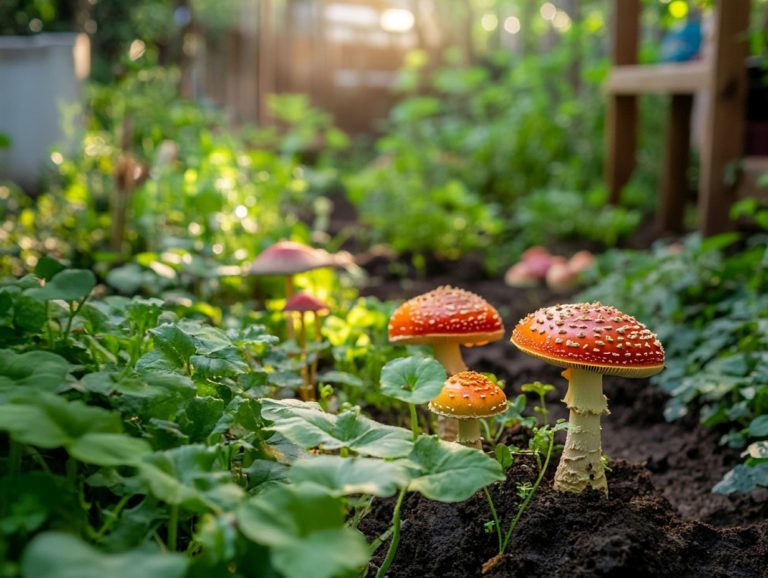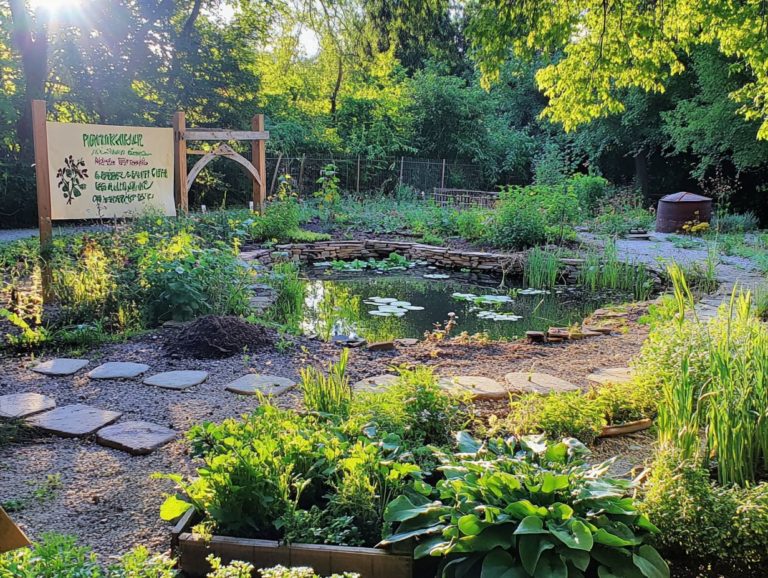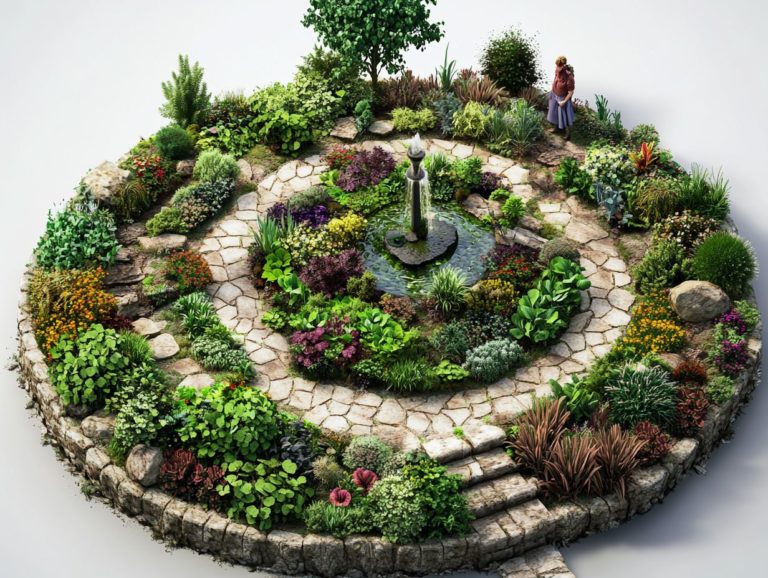What are the Most Effective Organic Pest Control Methods?
In a world increasingly attuned to environmental health, you ll find that organic pest control is rising in popularity as a sustainable alternative to traditional chemical methods.
This article delves into the significance of organic pest control, emphasizing its benefits for both the environment and your well-being. Discover exciting types of organic pest control, from harnessing natural predators to using organic pesticides, along with DIY methods to ensure your garden thrives.
It also provides guidance on selecting the right approach and effective strategies to prevent infestations. Ready to learn how to protect your garden naturally?
Contents
- Key Takeaways:
- The Importance of Organic Pest Control
- Explore Exciting Organic Pest Control Techniques!
- Organic Pesticides
- DIY Organic Pest Control Methods
- Choosing the Right Organic Pest Control Method
- Preventing Pest Infestations
- Frequently Asked Questions
- What are the Most Effective Organic Pest Control Methods?
- Are natural predators a viable option for organic pest control?
- What types of traps are effective for organic pest control?
- Do physical barriers work for organic pest control?
- Can organic sprays and repellents be as effective as chemical pesticides?
- What are the benefits of using organic pest control methods?
Key Takeaways:
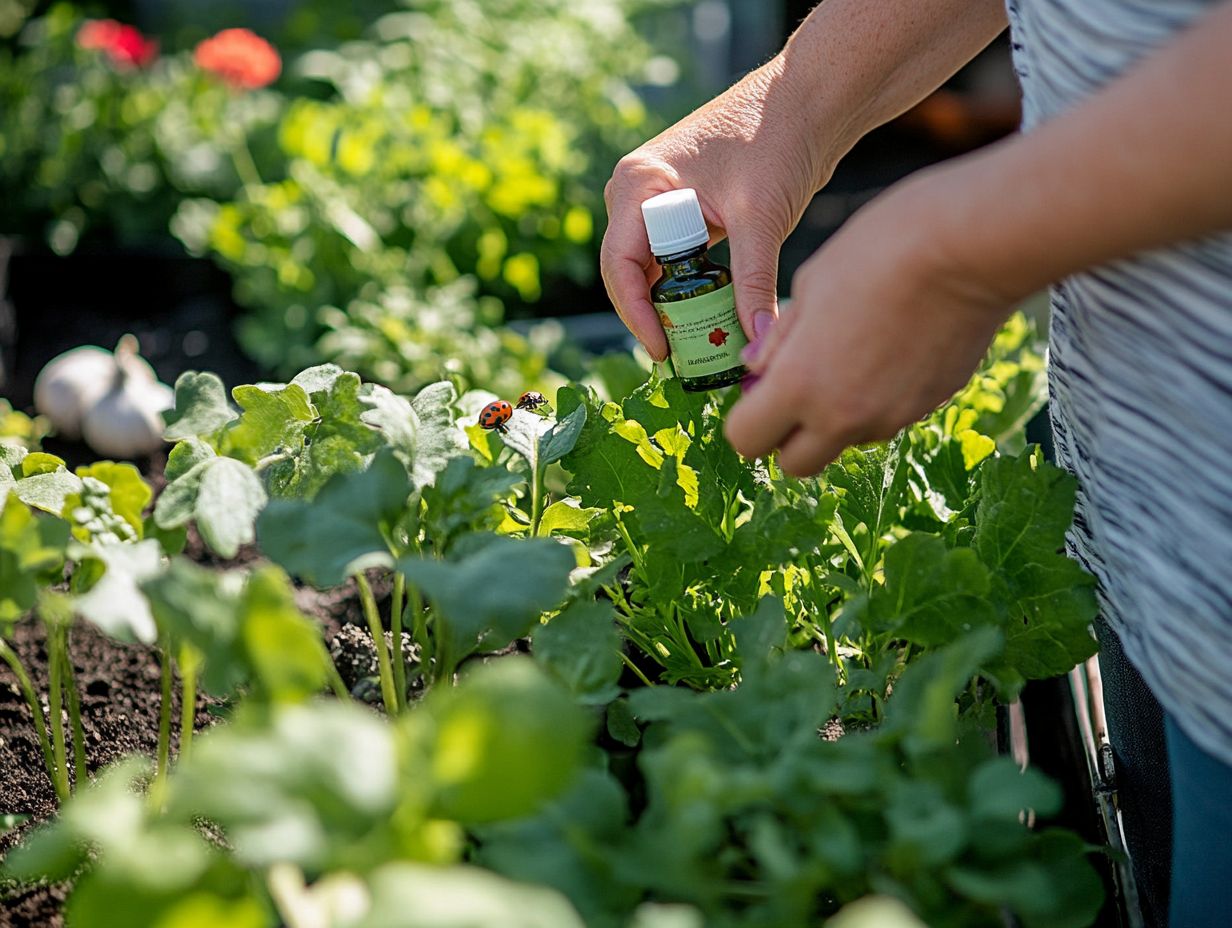
- Choosing organic methods boosts your health and the planet’s health by promoting biodiversity.
- Natural predators, organic pesticides, and DIY techniques are helpful forms of organic pest control.
- When choosing the right organic pest control method, consider effectiveness, safety, and cost.
The Importance of Organic Pest Control
Organic pest control is essential not just for the health of your vegetable gardens, but also for the sustainability of our ecosystems.
By employing effective control methods, you ll likely find significant improvements in managing pests without the need for harmful chemicals. This approach encourages the integration of natural pest control techniques, such as crop rotation and introducing helpful insects, which enhance biodiversity and foster a healthier environment.
With increasing awareness of the detrimental effects of traditional pesticides, many people are choosing to embrace organic gardening practices that prioritize the well-being of both plants and pollinators.
Benefits for the Environment and Health
Choosing organic pest control not only benefits you as a gardener but also has a positive ripple effect on the environment and public health by promoting biodiversity and reducing chemical exposure.
By opting for organic methods, you can significantly cut down on pesticide runoff, notorious for contaminating waterways and harming aquatic life. This approach nurtures a healthier ecosystem by protecting helpful insects like bees and ladybugs that are vital for pollination and natural pest management.
Organic practices enhance soil health by encouraging natural microorganisms and improving nutrient availability, fostering a sustainable environment where your plants can thrive without the drawbacks associated with synthetic chemicals. Embracing organic pest control cultivates a more harmonious relationship between your gardening efforts and the surrounding ecosystem.
Explore Exciting Organic Pest Control Techniques!
You have a range of organic pest control methods at your disposal that can effectively tackle garden pests while nurturing a sustainable gardening ecosystem.
Techniques like integrated pest management, a method that combines different pest control strategies, have become increasingly favored by gardeners dedicated to maintaining vibrant vegetable gardens. By employing helpful insects and organic pesticides, you can achieve effective pest control without sacrificing environmental integrity.
By familiarizing yourself with these common methods, you can choose the most appropriate solutions tailored to your specific pest challenges.
Natural Predators and Biological Controls
Natural predators are essential for biological pest control, offering an eco-friendly approach to managing garden nuisances like aphids and Japanese beetles. These helpful organisms not only regulate pest populations but also contribute to a balanced ecosystem within your garden.
Take ladybugs, for example; their insatiable appetite for aphids makes them an invaluable ally for any gardener. Lacewings are another great asset, effective against a range of soft-bodied insects, with their larvae eagerly consuming pests. This adds considerable value to any pest management strategy you might employ.
To attract these helpful insects, consider cultivating a variety of flowering plants, such as marigolds and dill. Creating habitats with native plants and minimizing chemical use can help these natural predators flourish, ultimately enhancing the health of your garden ecosystem.
Start using organic pest control today and watch your garden flourish!
Organic Pesticides

Organic pesticides, such as insecticidal soaps and biological pesticides, provide effective alternatives to traditional chemical options. They enable you to combat pests while safeguarding the environment.
These substances come from natural sources. They work through various mechanisms, disrupting pest life cycles or using beneficial microorganisms to target harmful insects. For example, insecticidal soaps suffocate soft-bodied pests like aphids. Biological pesticides use natural predators or pathogens to manage pest populations. This approach is effective and ensures the safety of beneficial insects.
Application methods are simple, such as sprays or soil drenches. This makes it easy for you to implement them in both residential and agricultural settings. Compared to conventional pesticides, which can have long-term detrimental effects on soil health and non-target species, organic options significantly reduce environmental impact and promote a sustainable ecosystem. This makes them a fantastic choice for the conscientious gardener committed to responsible practices.
DIY Organic Pest Control Methods
DIY organic pest control methods empower you to take charge of your pest challenges with homemade remedies and sustainable practices customized to your needs. This often leads to remarkably effective pest management solutions.
Using physical methods to control pests, utilizing trap crops (plants that attract pests away from your main crops), and embracing companion planting can significantly decrease pest pressure all without harmful chemicals. These approaches not only boost the health of your vegetable garden but also promote a more sustainable gardening philosophy.
Homemade Pest Repellents
Homemade pest repellents made from common household ingredients offer a natural and effective approach to pest management. They seamlessly align with your organic gardening practices.
These eco-friendly solutions reduce reliance on chemical pesticides and safeguard the beneficial insects that help your garden thrive. By using everyday items like vinegar, essential oils, or even garlic, you can create powerful mixtures that keep unwanted visitors like aphids, mosquitoes, and spiders at bay.
Application methods are refreshingly simple. You can spray directly onto your plants or set traps around your home. These natural repellents can be tailored to address specific pests you encounter, making them both customizable and efficient for your diverse gardening needs.
Organic Gardening Techniques
Implementing organic gardening techniques is essential for creating a healthy and sustainable gardening environment. This ultimately reduces the likelihood of pest infestations.
By focusing on effective garden sanitation methods and careful soil fertility management, you can cultivate a thriving ecosystem. Regularly removing debris and plant residues keeps your garden tidy and minimizes habitats for pests and diseases.
Enriching your soil with organic compost and mulches enhances nutrient availability, fostering vigorous plant growth. Keeping a vigilant eye on potential pest populations through monitoring techniques, such as using sticky traps or introducing natural predators, further ensures that your plants remain healthy and productive.
All these strategies contribute to a well-balanced, eco-friendly gardening space that you can take pride in.
Choosing the Right Organic Pest Control Method
Selecting the ideal organic pest control method is crucial for achieving effective garden pest management. Your choice depends on the specific pest challenges you face and the unique regional conditions that influence those issues.
Don’t wait start using these methods today!
Factors to Consider
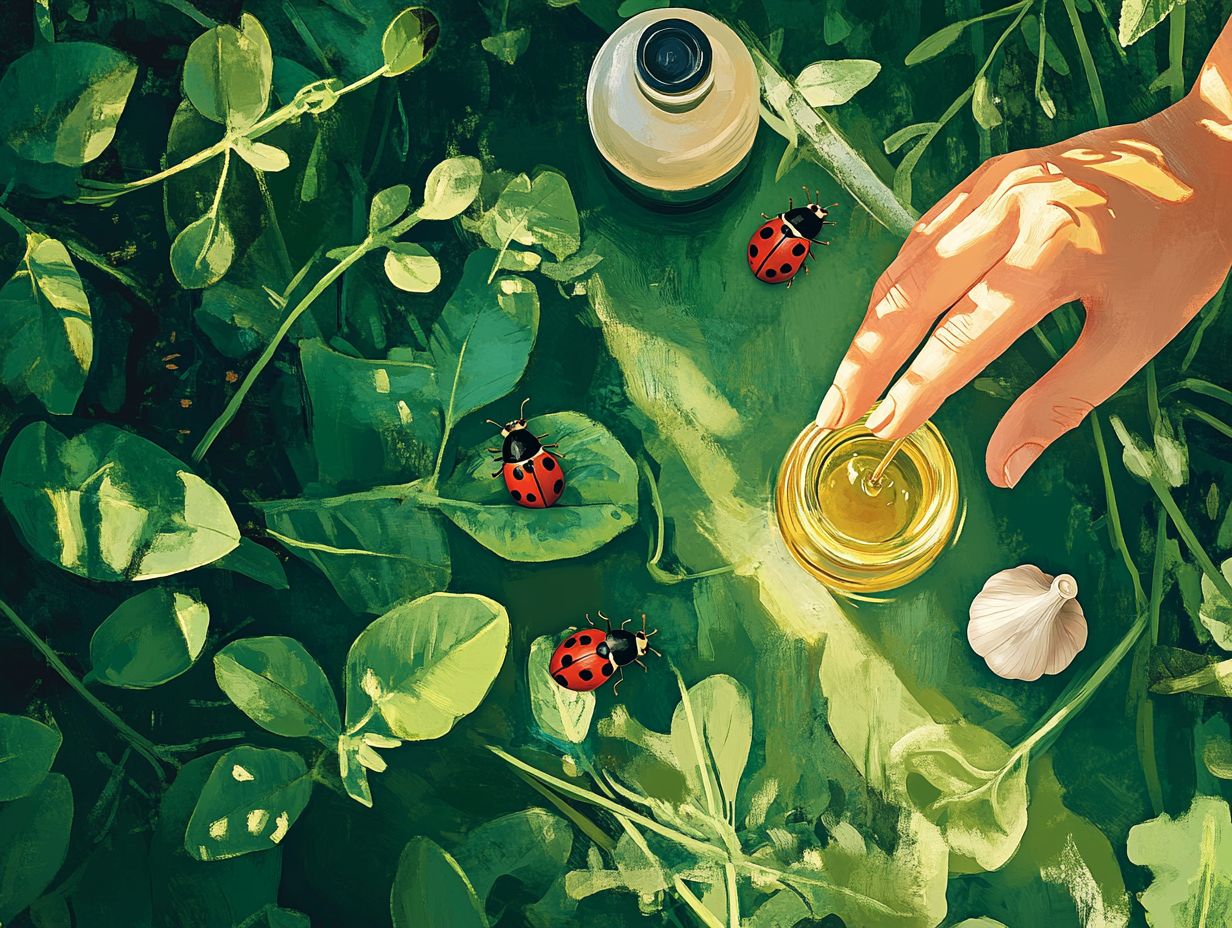
When selecting organic pest control methods, several factors deserve your careful consideration. You’ll want to assess the pest damage threshold and identify the specific pests you’re dealing with.
Additionally, it’s important to think about how your choices affect the environment! Evaluate the environmental impact of the methods you choose and their long-term effectiveness in managing pest populations. Integrated Pest Management (IPM) practices, for instance, offer a balanced approach that minimizes harm to beneficial insects and surrounding ecosystems.
The effectiveness of each method can vary, so understanding the life cycle of pests will help you pinpoint the most suitable control strategies. Economic factors also play a crucial role in your decision-making process. Consider the costs associated with organic solutions and the potential yield losses pests may incur.
By ensuring that your chosen pest control methods align with sustainable agricultural practices, you’ll be setting yourself up for success in the long run.
Preventing Pest Infestations
Preventing pest infestations is essential for sustainable pest management and integrated pest management. By employing proactive strategies, you can minimize risks and preserve the health of your garden.
Effective Strategies for Prevention
Implement effective prevention strategies, such as garden sanitation and changing the types of plants you grow each season, to significantly reduce your risk of pest infestations in your vegetable gardens.
Regularly clear away debris and maintain a pristine growing environment. This limits the habitats where pests thrive. Changing your plants food sources disrupts the life cycles of pests, making it less likely for them to reproduce.
Creating habitats that attract helpful insects like ladybugs and lacewings enhances the natural balance in your garden. These beneficial insects serve as predatory insects, keeping pest populations in check without the need for harsh chemical treatments.
Together, these approaches not only safeguard your plants but also contribute to a more resilient and sustainable gardening ecosystem.
Watch this video to learn more about effective organic pest control strategies!
Frequently Asked Questions
What are the Most Effective Organic Pest Control Methods?
The most effective organic pest control methods include using natural predators, traps, physical barriers, and organic sprays and repellents.
Are natural predators a viable option for organic pest control?
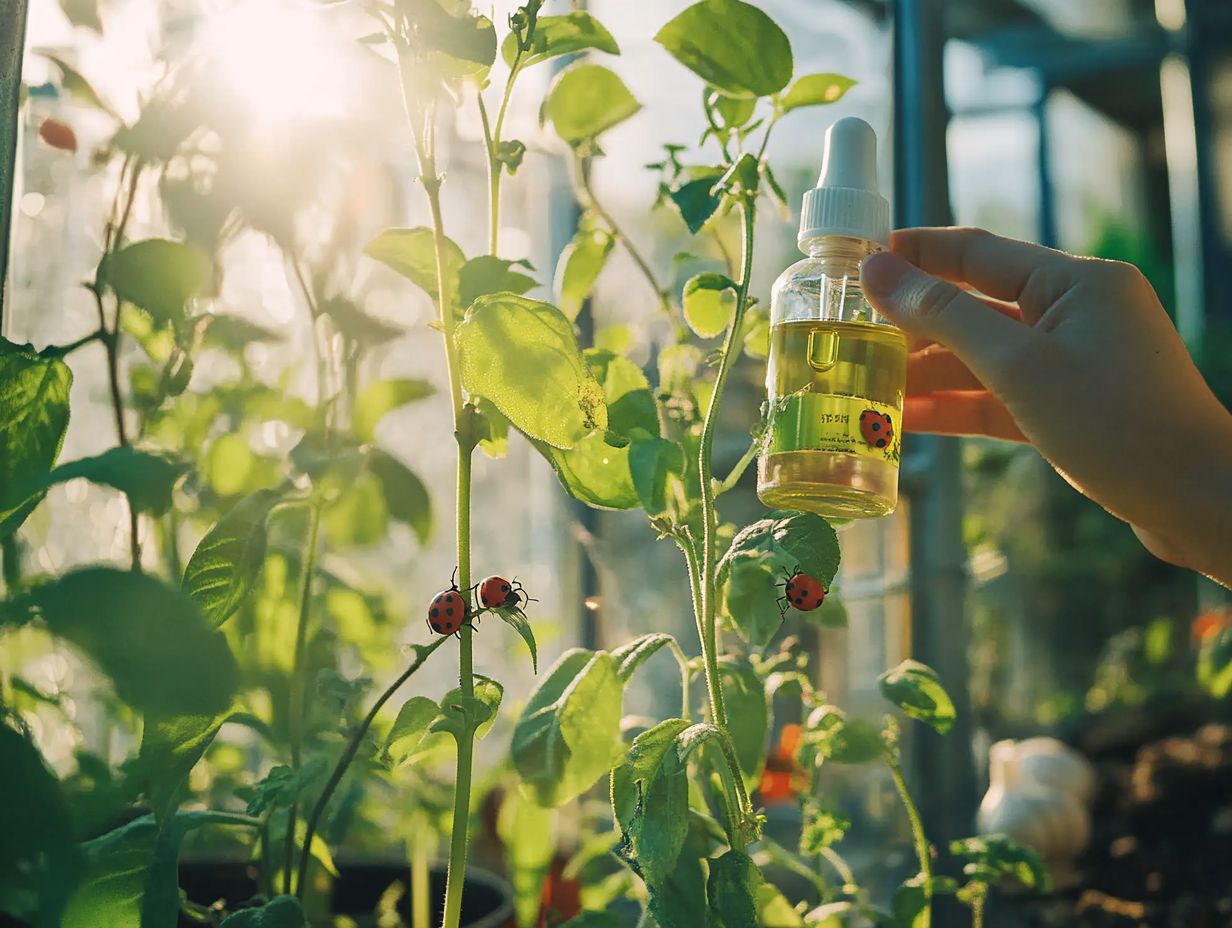
Yes, natural predators such as ladybugs, slugs, praying mantises, and nematodes can be used to control pests in a natural and organic way.
What types of traps are effective for organic pest control?
Many types of traps can be used for organic pest control, including sticky traps, trap crops, pheromone traps, and light traps. These traps capture and remove garden pests from your garden or home.
Do physical barriers work for organic pest control?
Yes, physical barriers like netting, row covers, electric fence barriers, and mulch can help prevent pests from accessing your plants. This is often a highly effective method for organic pest control.
Can organic sprays and repellents be as effective as chemical pesticides?
Yes, many organic gardening techniques, sprays, and repellents are just as effective as chemical pesticides for controlling pests. These products use natural, plant-based ingredients to repel or kill pests without harmful chemicals and are considered effective organic pest solutions by many gardeners.
What are the benefits of using organic pest control methods?
Using organic pest control methods can provide several benefits, including protecting the environment, avoiding harmful chemicals, and maintaining the health of your plants while promoting biodiversity.
Don’t wait! Start protecting your garden naturally today!

